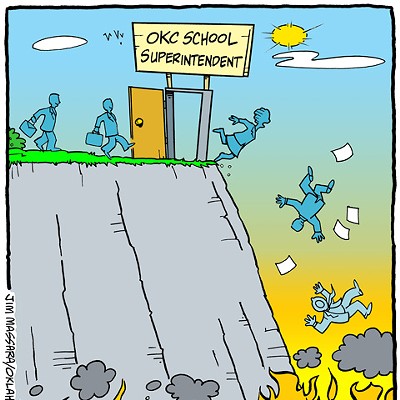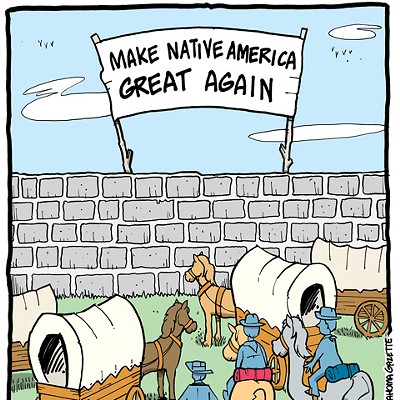With the national economy in the tank, the residents of Central Oklahoma are experiencing cautious optimism. Noted Oklahoma State University economist Mark Snead has projected a relatively rosy outlook for 2009 for the state as a whole, with the Oklahoma City area leading Tulsa. Oklahomans are too practical to fall for the promise of an endless boom and will not fall prey to the arrogance of considering our region "recession-proof." With Snead, the people of Oklahoma City are too smart to attempt to predict energy prices in the future and we all know the effect a dramatic decrease in energy prices could have.
The legacy of the Keating years has left Oklahoma City with structural advantages relative to other metropolitan areas in the country. While Detroit is on the edge of a precipice and other cities, like Scranton, Penn., and Pittsburgh, have been reeling for decades, other cities, like Charlotte, N.C., and Nashville, along with Oklahoma City, have seen good times for a substantial period. The greatest single difference between the former and latter cities (other than access to high quality barbecue) is the presence of a free and flexible labor force.
As Oklahoma has turned toward the GOP to an unprecedented extent, the nation has gone Democrat, and therein lays the danger. This danger comes from a profoundly undemocratic direction. National Democrats are poised to enact the so-called Employee Free Choice Act, which would abolish the use of secret ballot elections in unionizing campaigns. Under the EFCA, a majority of workers in a given workplace unit need merely to sign a card prepared by union organizers and the employer is forced to bargain with the given union.
The dangers in this legislation to Oklahoma interests are manifold. First, out-of-state "big labor" interests can interfere in the workplaces to their own aggrandizement and to the harm of both Oklahoma workers and businesses. The introduction of French-style (or, for that matter, Michigan-style) dirigisme in labor relations would harden the free and flexible labor that currently gives Oklahoma City an economic advantage. Secondly, properly constituted unions in Oklahoma would be cheapened by what I call union inflation. At present, we give the benefit of the doubt to unions in areas like public safety or the specialized trades because we know that they are accountable to their members and were formed in a democratic fashion. Under the new regime, businesses and consumers would take a more jaundiced look at union demands because we would not know if they were formed and began their bargaining laws thanks to intimidation and unfair organizing techniques.
Finally, Oklahoma City's economic backbone, and indeed its soul, lies in small business. Without meaningful exemptions from such a rigid law, small business would be at even more of a disadvantage as against big business, which has more experience and a greater margin in dealing with big labor. I stood beside my first mentor in Oklahoma politics as the Guardian statue was placed on top of the new Capitol dome. He told me on that day that they should make him face east as Washington is where the danger to be guarded against would come. As the new administration considers EFCA, I will remember his words.
Reese is an attorney who lives in Oklahoma City with his wife and sons.












